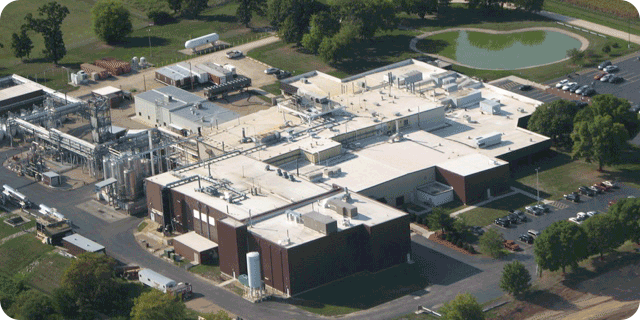Hepalink finds path to prosperity in Waunakee
Wisconsin’s attributes, business climate help drive growth
Scientific Protein Laboratories, an Oscar Mayer spinoff begun in 1976, used Waunakee as a launch pad for growth. There, the company built the momentum to become a world leader in high-quality heparin and pancreatic enzymes—known as active pharmaceutical ingredients (APIs)— for the drug, veterinary, and food industries worldwide.
Specializing in biopharmaceutical manufacturing, the company was acquired for $337.5 million by Shenzen, China-based Hepalink in 2014. Founded in 1998, Hepalink produces, distributes, and sells heparin sodium to pharmaceutical companies globally. The acquisition gave the Scientific Protein Laboratories a more global reach and deeper access to research and development assets.
Growth keeps company on the cutting edge
At the time of the purchase, Hepalink CEO Li Li said Scientific Protein Laboratories would “strengthen Hepalink’s globally leading advantages in technology, processing techniques, quality, and safety standards, and form a global heparin API manufacturing, R&D, and distribution network for Hepalink.”
Scientific Protein Laboratories’ plant, expanded several times since 1976, also provides contract process development and cGMP manufacturing services, including heparin derivatives, natural products extraction, fermentation, and purification.
After its acquisition, Hepalink invested an additional $80 million in capital investments in the Waunakee facility. With about 270 employees, Scientific Protein Laboratories has established a proven track record in efficient process development, analytical testing, quality assurance, and regulatory support.
Wisconsin provides a strong business climate

Shawn Lu, Chief Financial Officer, Hepalink USA
Acquiring Scientific Protein Laboratories aligned with Hepalink’s broader strategy, allowing the Wisconsin operation to broaden its global supply chain. Shawn Lu, Hepalink USA’s chief financial officer, says Wisconsin’s favorable business climate and supporting attributes helped the company build on its success.
“Wisconsin has a stable workforce, well-trained technicians, and skilled workers; a highly developed and respected education system; reasonable labor costs; and low land and utility costs,” Lu adds.


